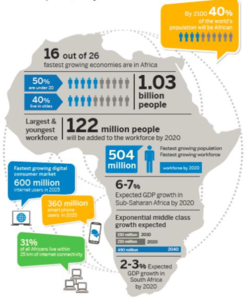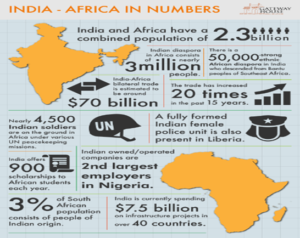African Union G20’s potential 21st member.
Relevance
- GS 2: Bilateral, Regional and Global Groupings and Agreements Involving India.
- Tags: #AfricanUnion #G20 #UPSC #EditorialAnalysis.
Why in the News?
India, as the G20 chair, is proposing the inclusion of the African Union (AU) as a member ahead of the September 9-10 summit, potentially making it the 21st member.
G20 to become G21 with AU’s inclusion, says PM Modi
- Prime Minister Narendra Modi has said that the G20 will become G21 with the inclusion of the African Union (AU).
- No plan for the future of the planet can be successful without the representation and recognition of all voices.
- PM Modi said that Africa is a top priority for India even within the G20.
- He noted that one of the first things India did during its G20 presidency was to hold the “Voice of the Global South” summit, which had enthusiastic participation from Africa.
- PM Modi also said that there is a need to come out of a purely utilitarian worldview and embrace a Sarva Jana Hitaaya, Sarva Jana Sukhaaya (for the welfare of all, for the happiness of all) model.
The African Union (AU): Shaping Africa’s Future
- The African Union (AU) is a continental organization consisting of 55 member states, serving as the foremost platform for representing the collective voice of African nations.
- Established in 2002, it succeeded the Organization of African Unity (OAU), which was active from 1963 to 1999.
- Headquarters – Addis Ababa, Ethiopia.
- The AU’s vision is to create “an Integrated, Prosperous and Peaceful Africa, driven by its own citizens and representing a dynamic force in the global arena.”
To achieve this vision, it has outlined key objectives
- Enhanced Unity and Solidarity: Fostering greater unity and solidarity among African nations and their people to work collectively towards common goals.
- Safeguarding Sovereignty: Protecting the sovereignty, territorial integrity, and independence of its member states.
- Promoting Integration: Accelerating political and socio-economic integration across the continent to stimulate growth and development.
- Advocating Common Positions: Advocating and defending African common positions on global issues that impact the continent and its people.
- International Cooperation: Encouraging cooperation with international partners to address shared challenges effectively.
- Peace and Stability: Promoting peace, security, and stability in Africa, fostering an environment conducive to progress and prosperity.
Historical Background: India – African Union
| Year | Event |
| 1955 | India is one of the founding members of the Organization of African Unity (OAU), the predecessor to the African Union. |
| 1960 | India provides military assistance to Algeria during its war of independence from France. |
|
1970 |
India establishes the Indian Technical and Economic Cooperation (ITEC) program, which provides training and development assistance to African countries. |
| 1980 | India becomes a member of the Non-Aligned Movement, a group of countries that are not aligned with either the United States or the Soviet Union.
|
| 1990 | India and the African Union sign a Joint Declaration of Intent to strengthen cooperation in a number of areas, including trade, investment, and development. |
| 2000
|
India hosts the first India-Africa Summit, which brings together leaders from India and 48 African countries.
|
| 2008 | India launches the Pan-African e-Network, a project to provide satellite connectivity to African countries. |
| 2010 | India provides $500 million in aid to Africa to help the continent recover from the global financial crisis. |
| 2015 | India and the African Union sign a Framework Agreement on Cooperation in the Areas of Peace and Security. |
| 2020 | India launches the India-Africa Health Initiative, a program to provide medical assistance to African countries. |
| 2023 | India and the African Union agree to establish a joint task force to combat terrorism. |
Complexities within the African Union
Lack of Political Cohesion
- A notable complexity within the African Union (AU) lies in the lack of political cohesion among its member countries.
- Each nation faces distinct challenges, ranging from internal issues to regional disputes, which can hinder collective decision-making.
Diverse Challenges
- Member States’ challenges are diverse.
- For instance, Sudan struggling with a military conflict leading to mass displacements, Rwanda faces political constraints, with opposition members imprisoned, and Morocco and Algeria engage in a territorial dispute over Western Sahara.
Regional Economic Committees (RECs)
- The AU comprises eight Regional Economic Committees (RECs), each with its own structure and role.
- These committees add a layer of complexity to the AU’s internal dynamics.
AU’s G20 Membership Aspiration
- Senegal, currently holding the AU presidency, has actively pursued membership in the G20.
- This decision was formalized during the AU Summit in February 2023, with support from President Macky Sall, the AU chairperson at that time.
Controversy Over Inclusion
- Some controversial issues surround the inclusion of two AU member countries, Somaliland and the Sahraoui Arab Democratic Republic (SADR), as they lack recognition by the United Nations.
- India also does not recognize SADR.
- There are debates within the AU about whether these entities should participate when the AU becomes a member of the G20.
How AU Membership in G20 will Benefit India –Africa ties?
Redefining the G20 with Inclusivity
- The African Union’s entry into the G20 signifies a shift from an exclusive club to an inclusive one, bringing voices from the Global South.
- This is significant as over 85% of the world’s population resides in the Global South.
Strengthening India-Africa Ties in the UN
- Strong ties between India and the African Union can enhance India’s influence in the United Nations.
- The AU, with its significant voting power in the UN General Assembly, can be a valuable ally for India on various global issues.
India’s Trustworthiness in Africa
- India is viewed as a trustworthy partner by African nations, in contrast to other global players like China, France, the US, and Europe.
- India’s active engagement in Africa, including completed projects and concessional loans, reinforces this trust.
Development Contracts and Business Opportunities
- India can leverage its positive image and expand its presence in Africa by winning more development contracts and exploring business opportunities in African countries.
Booming African Market
- Africa’s growing market presents a significant opportunity for Indian businesses.
- Bilateral trade between India and Africa has been steadily increasing, reaching $98 billion in 2022-23, and is expected to cross the $100 billion mark soon.
Abundant Natural Resources
- Africa possesses vast potential in agriculture, fisheries, and mineral resources, offering opportunities for economic growth, food security, and industrial development.
Shared Global Challenges
- Pressing global issues like climate change, pandemics, security, and debt significantly impact Africa.
- Simultaneously, Africa holds potential solutions.
Enhanced cultural and people-to-people ties
- India and Africa have a long history of cultural and people-to-people ties.
- AU membership in the G20 would help to further strengthen these ties and promote understanding between the two continents.
The inclusion of the African Union in the G20 would make the forum more inclusive and representative of the global community, and would help to ensure that the G20’s decisions are more responsive to the needs of African countries.
Source: Financial Express, India Today.
Mains Question
What are the Potential implications of the African Union’s membership in the G20 for global governance and geopolitics?





